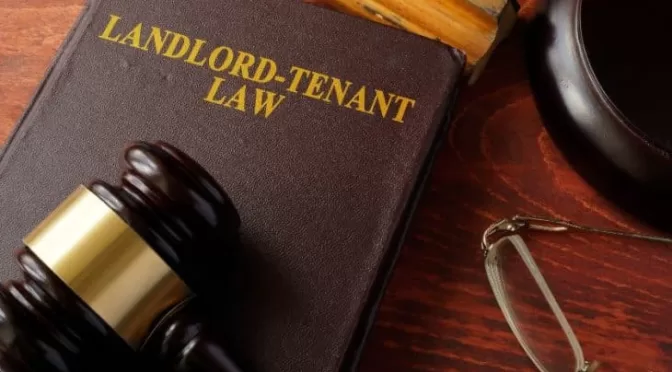The process of navigating through Massachusetts Divorce Laws can indeed feel like a daunting task, akin to traversing a maze with seemingly no end in sight. The legal terminologies, timelines, and rules can be perplexing and often overwhelming. However, the aim here is to simplify this complex process by addressing your most crucial questions, providing a solid foundation for understanding and potentially easing your journey.
Divorce or Legal Separation
When it comes to divorce or legal separation in Massachusetts, it’s essential to understand the differences. Divorce legally dissolves a marriage, officially marking the end of the relationship in the eyes of the law. On the other hand, legal separation is a less definitive approach, allowing couples to live separately without officially terminating their marriage. It’s a middle ground, of sorts, that maintains the legal bond of marriage while acknowledging the couple’s desire for physical and financial separation.
The Fine Line: Joint Petition and Uncontested Divorce
There is a fine line between a Joint Petition and an Uncontested Divorce. A Joint Petition essentially represents teamwork in a divorce, with both spouses filing together and demonstrating agreement on all issues. It’s a collaborative process that requires open communication and mutual understanding. However, in an Uncontested Divorce, the dynamics change as one spouse initiates the divorce, and the other chooses not to challenge the conditions. It’s less collaborative and more of an acceptance of terms set out by the initiating party.
Crucial Decisions in Divorce
During a divorce, there are crucial decisions that must be made. These decisions can significantly impact your life post-divorce and include key topics such as property division, child custody, child support, and spousal support. Each of these components requires careful consideration and, in most cases, negotiation. The goal is to reach an agreement that respects both parties’ rights and is in the best interests of any children involved.
Grounds for Divorce
As for the grounds for divorce, Massachusetts Divorce Laws provide two main options. You can file for a no-fault divorce, which doesn’t necessitate a specific reason for the dissolution of the marriage. Alternatively, you can opt for a fault divorce, where you need to cite specific reasons such as adultery, desertion, or abuse. The choice between these two largely depends on the circumstances surrounding the end of the marriage.
Divorce Timeline: How Long Does It Take?
Understanding the timeline of a divorce is equally important. An uncontested divorce in Massachusetts typically wraps up within 3-6 months, allowing both parties to move on relatively quickly. However, a contested divorce might extend over a year, becoming a drawn-out process that can be emotionally and financially draining.
Should You File First?
The decision of whether to file first in a divorce can carry some weight. Filing first might offer some advantages, such as setting the court timeline, and giving you a sense of control over the proceedings. However, it typically has a minimal effect on the final outcome, and therefore, should not be a source of significant concern.
Understanding Divorce Costs
The costs involved in a divorce can vary widely. Divorce in Massachusetts can cost from a relatively modest $200 to several thousands of dollars. This cost is influenced by factors such as attorney’s fees, court costs, and the type of divorce (contested or uncontested) that you’re going through.
Covering Legal Fees
Covering legal fees is another crucial aspect. In cases where there’s a significant income disparity between the spouses, Massachusetts courts might order one spouse to contribute to the other’s legal fees. This is to ensure that both parties have a fair chance to represent their case, regardless of their individual financial circumstances.
Filing Divorce Paperwork Yourself
You may wonder whether you can handle the divorce paperwork yourself. While Massachusetts law does allow you to file divorce paperwork independently, it’s often beneficial to seek professional guidance. This is due to the legal complexities involved in a divorce, where an experienced professional’s insight can be invaluable.
Impact of Infidelity
The impact of infidelity on a divorce proceeding can vary. In a fault divorce, infidelity might sway the judge’s decisions, potentially influencing factors like alimony or property division. However, in a no-fault divorce, it typically doesn’t hold much weight, especially regarding property division or alimony.
Property Rights and Lock Changing
When it comes to property rights and changing locks, it’s important to know that Massachusetts law has clear guidelines. Even if your name is on the house, you are forbidden from changing the locks without a court order or your spouse’s consent during a divorce. This is to protect both parties’ rights to the marital home until official decisions are made.
To Sell or Not to Sell the House
Deciding whether to sell the house or not is another significant decision during a divorce. Massachusetts Divorce Laws don’t mandate the selling of the house in a divorce. You have several options to consider: selling the property and splitting the proceeds, one spouse buying out the other, or deferring the decision on ownership to a later time.
Understanding Community Property
In Massachusetts, it’s also crucial to understand how property division works. The state isn’t a community property state but an equitable distribution state. This means that the courts aim to divide property fairly, but not necessarily equally, taking into account factors like each spouse’s income, earning potential, and contributions to the marriage.
Inheritance in Divorce
Inheritance during a divorce follows its own set of rules. In Massachusetts, inheritance is usually considered separate property and not subject to division in a divorce, unless it has been mingled with marital assets. This means that if you’ve kept your inheritance separate from your shared assets, it’s typically protected from division.
Addressing Debts
Addressing debts during a divorce is another critical area. Both spouses typically share responsibility for debts incurred during the marriage. However, the division of these debts depends on several factors, including who can better manage the debt and who was more responsible for incurring it.
Sharing Your 401(k)
Sharing your 401(k) and other retirement assets with your spouse may be a part of your divorce settlement. This division is based on a Qualified Domestic Relations Order, a legal document that provides a roadmap for dividing retirement benefits.
How Retirement Accounts Divide
Retirement accounts’ division follows a specific method called the “coverture fraction.” This approach takes into account the length of the marriage and the period over which the retirement benefits were accumulated. It aims to ensure a fair division of these benefits, considering both the time and effort invested during the marriage.
Who Handles the Debts?
After the divorce, the responsibility for debts like credit cards and student loans typically lies with the party who incurred the debt. However, the courts will also consider each party’s ability to pay. This ensures that the burden of debt isn’t placed on a party who may not be able to manage it.
Spousal Support Calculation
Spousal support calculation is another crucial component of divorce proceedings. Courts calculate spousal support by considering a variety of factors like the length of the marriage, each party’s income and employment status, and the lifestyle maintained during the marriage. These factors help the court to arrive at a fair and just amount.
Determining Spousal Support: Key Factors
Determining spousal support also involves key factors such as age, health, income, and the standard of living during the marriage. Courts consider these factors to ensure that the spousal support awarded is equitable and allows both parties to maintain a reasonable standard of living post-divorce.
Ready to Take the Next Step?
Having traversed through this guide, you’re now better prepared to take the next step. Remember, this guide provides an overview of Massachusetts Divorce Laws, but every situation is unique. To fully understand your options and rights, it’s important to discuss your specific circumstances with a legal professional. They can provide tailored advice and guidance based on your individual situation.
Our experienced team is here, ready to assist you. We warmly invite you to set up an appointment with us today. Our goal is to explore your questions further and guide you through this challenging time with patience, empathy, and expertise. Remember, you don’t have to navigate this complex process alone. Reach out to us today and let us help you through this journey.





















